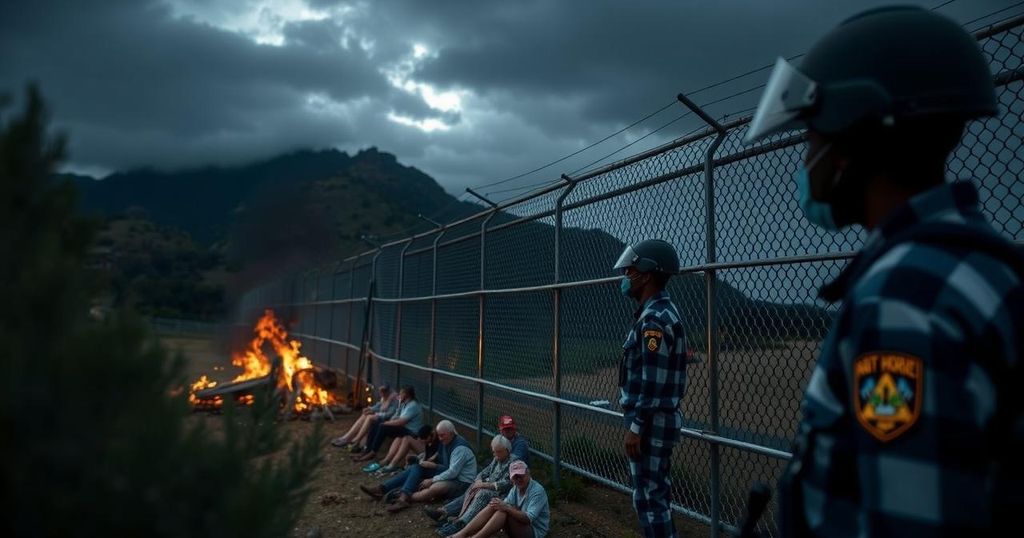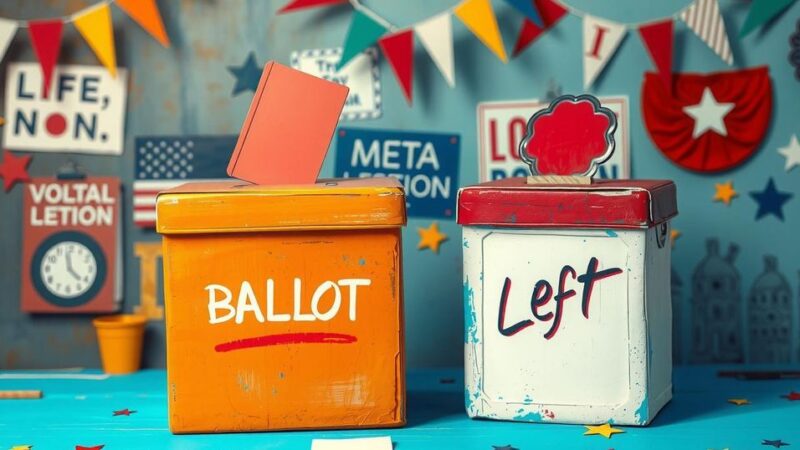South Africa has closed its border with Mozambique as violent protests ensue following disputed election results. The unrest has led to fatalities and numerous injuries, with accusations of electoral fraud levied against the ruling Frelimo party. The situation escalated as protesters clashed with police in major cities, prompting calls for calm from South African officials.
In response to escalating post-election violence in Mozambique, South Africa swiftly closed its border with the neighboring country. This action followed an initial reopening on Thursday, highlighting the critical situation arising from protests sparked by opposition leaders contesting the results of the October 9 elections. Reports indicate significant unrest, with Amnesty International documenting at least 20 fatalities and numerous injuries since the protests began in late October. Opposition factions accuse the ruling Frelimo party of electoral manipulation, asserting that the official declaration of victory with over 70% of the votes for Daniel Chapo is invalid. Protesters in cities like Maputo have clashed with police, who reportedly used tear gas to break up demonstrations. There are alarming accounts of looting and violence, prompting South Africa’s Border Management Agency to restrict access following the entry of 15 Mozambican employees seeking refuge. Minister of International Relations, Ronald Lamola, expressed concern over the violence, calling for a peaceful resolution. Internet access in Mozambique has been disrupted, complicating the situation further. The Mozambican government has threatened military action against demonstrators, an alarming escalation critics have described as a severe crackdown on dissent. Protests led by opposition figure Venancio Mondlane, who garnered 20% of the presidential vote, have gained traction despite his reported exodus from the country after his aides were killed in the lead-up to the elections. The complexity of the political landscape is underscored by the fact that while the Mozambique Electoral Commission announced the election results, the Constitution Council is responsible for adjudicating any related disputes. Reports indicate that the opposition parties, particularly Renamo and Podemos, have raised significant issues regarding the legitimacy of the election process.
The border closure between South Africa and Mozambique stems from a surge in violence following the disputed presidential elections held on October 9. The ruling party, Frelimo, has maintained power for nearly five decades, and accusations of electoral fraud have incited public unrest and violent protests. The situation has drawn international concern as human rights groups signal a severe crackdown by the government against demonstrators. The political climate remains charged, with opposition leaders and supporters rallying for change.
The closure of the border between South Africa and Mozambique reflects the severe unrest triggered by contested elections and subsequent violence. With fatalities mounting and protests intensifying, the international community watches closely as the situation develops. The Mozambican government’s threats to deploy military force against protesters emphasize the necessity for diplomatic intervention and a peaceful resolution to the political crisis. The implications of this unrest not only affect Mozambique but also regional stability in Southern Africa.
Original Source: guernseypress.com






